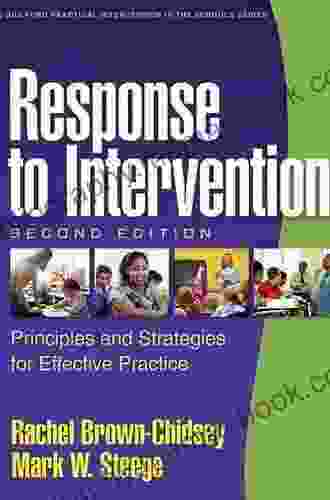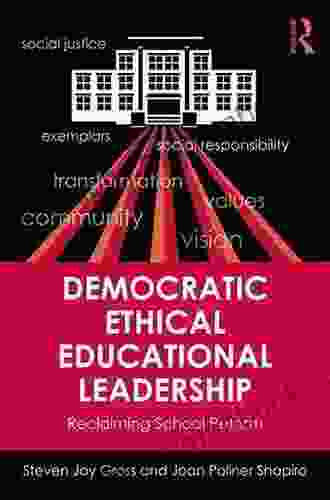Democratic Ethical Educational Leadership: Reclaiming School Reform

School reform is a complex and challenging issue that has been debated for decades. There is no one-size-fits-all solution, and what works in one school may not work in another. However, there are some key principles that can help to guide school reform efforts, and one of the most important of these is democratic ethical educational leadership.
Democratic ethical educational leadership is a leadership approach that emphasizes the importance of democracy, ethics, and education in school reform. This approach is based on the belief that schools are democratic institutions that should be run by and for the people who are affected by them. It also emphasizes the importance of ethics in school reform, and believes that all decisions should be made in the best interests of students. Finally, democratic ethical educational leadership emphasizes the importance of education in school reform, and believes that schools should be places where students can learn and grow.
There are a number of key principles that underpin democratic ethical educational leadership. These principles include:
4.6 out of 5
| Language | : | English |
| File size | : | 2148 KB |
| Text-to-Speech | : | Enabled |
| Screen Reader | : | Supported |
| Enhanced typesetting | : | Enabled |
| Word Wise | : | Enabled |
| Print length | : | 180 pages |
- The principle of democracy: This principle holds that schools should be democratic institutions that are run by and for the people who are affected by them. This means that students, parents, teachers, and administrators should all have a voice in how their school is run.
- The principle of ethics: This principle holds that all decisions should be made in the best interests of students. This means that decisions should be based on sound evidence and research, and that they should always take into account the impact that they will have on students.
- The principle of education: This principle holds that schools should be places where students can learn and grow. This means that schools should provide a rigorous and engaging curriculum that is relevant to students' lives. It also means that schools should create a positive and supportive learning environment where students feel safe and respected.
There are a number of benefits to using a democratic ethical educational leadership approach in school reform. These benefits include:
- Increased stakeholder buy-in: When stakeholders are involved in the decision-making process, they are more likely to be supportive of the decisions that are made. This can lead to increased buy-in from students, parents, teachers, and administrators, which can help to create a more positive and collaborative school environment.
- Improved decision-making: Democratic ethical educational leadership can help to improve decision-making by ensuring that all perspectives are considered. This can lead to better decisions that are more likely to be effective in improving student outcomes.
- Increased accountability: When stakeholders are involved in the decision-making process, they are more likely to hold their leaders accountable for their decisions. This can help to create a more transparent and accountable school system.
- Improved student outcomes: Democratic ethical educational leadership has been shown to improve student outcomes in a number of ways. For example, research has shown that schools that use a democratic ethical educational leadership approach have higher student achievement, lower dropout rates, and more positive school climates.
Democratic ethical educational leadership can be used to reclaim school reform by empowering stakeholders and giving them a voice in the decision-making process. This can help to create a more just and equitable school system that is focused on the needs of all students.
Here are some specific ways that democratic ethical educational leadership can be used to reclaim school reform:
- Involve stakeholders in the decision-making process: The first step to using democratic ethical educational leadership to reclaim school reform is to involve stakeholders in the decision-making process. This can be done through a variety of methods, such as holding public meetings, creating advisory committees, and conducting surveys.
- Encourage dialogue and deliberation: Once stakeholders are involved in the decision-making process, it is important to encourage dialogue and deliberation. This means creating a safe and respectful space where stakeholders can share their perspectives and work together to find common ground.
- Make decisions based on evidence and research: When making decisions, it is important to base them on evidence and research. This means considering the best available evidence on what works in education and making decisions that are likely to improve student outcomes.
- Hold leaders accountable: It is important to hold leaders accountable for the decisions that they make. This means providing stakeholders with regular updates on the progress of school reform efforts and giving them the opportunity to provide feedback.
By following these steps, schools can use democratic ethical educational leadership to reclaim school reform and create a more just and equitable school system that is focused on the needs of all students.
Democratic ethical educational leadership is a powerful tool that can be used to reclaim school reform. This approach emphasizes the importance of democracy, ethics, and education in school reform, and it has been shown to improve student outcomes in a number of ways. By involving stakeholders in the decision-making process, encouraging dialogue and deliberation, making decisions based on evidence and research, and holding leaders accountable, schools can use democratic ethical educational leadership to create a more just and equitable school system that is focused on the needs of all students.
4.6 out of 5
| Language | : | English |
| File size | : | 2148 KB |
| Text-to-Speech | : | Enabled |
| Screen Reader | : | Supported |
| Enhanced typesetting | : | Enabled |
| Word Wise | : | Enabled |
| Print length | : | 180 pages |
Do you want to contribute by writing guest posts on this blog?
Please contact us and send us a resume of previous articles that you have written.
 Top Book
Top Book Novel
Novel Fiction
Fiction Nonfiction
Nonfiction Literature
Literature Paperback
Paperback Hardcover
Hardcover E-book
E-book Audiobook
Audiobook Bestseller
Bestseller Classic
Classic Mystery
Mystery Thriller
Thriller Romance
Romance Fantasy
Fantasy Science Fiction
Science Fiction Biography
Biography Memoir
Memoir Autobiography
Autobiography Poetry
Poetry Drama
Drama Historical Fiction
Historical Fiction Self-help
Self-help Young Adult
Young Adult Childrens Books
Childrens Books Graphic Novel
Graphic Novel Anthology
Anthology Series
Series Encyclopedia
Encyclopedia Reference
Reference Guidebook
Guidebook Textbook
Textbook Workbook
Workbook Journal
Journal Diary
Diary Manuscript
Manuscript Folio
Folio Pulp Fiction
Pulp Fiction Short Stories
Short Stories Fairy Tales
Fairy Tales Fables
Fables Mythology
Mythology Philosophy
Philosophy Religion
Religion Spirituality
Spirituality Essays
Essays Critique
Critique Commentary
Commentary Glossary
Glossary Bibliography
Bibliography Index
Index Table of Contents
Table of Contents Preface
Preface Introduction
Introduction Foreword
Foreword Afterword
Afterword Appendices
Appendices Annotations
Annotations Footnotes
Footnotes Epilogue
Epilogue Prologue
Prologue Seth Kinstle
Seth Kinstle Kennette Thigpen
Kennette Thigpen Thomas Berg
Thomas Berg Stephen Perrine
Stephen Perrine Freya Atwood
Freya Atwood T Chris Riley Tillman
T Chris Riley Tillman Vic Dimartino
Vic Dimartino Gordon H Chang
Gordon H Chang Clarisse A Jordan
Clarisse A Jordan Amy Mccready
Amy Mccready Abbi Waxman
Abbi Waxman Bill Marvel
Bill Marvel Lucia St Clair Robson
Lucia St Clair Robson Matt Larkin
Matt Larkin Alan Sillitoe
Alan Sillitoe Moliere
Moliere Joanne Hayle
Joanne Hayle Liv Constantine
Liv Constantine Ken Little
Ken Little Sam Fury
Sam Fury
Light bulbAdvertise smarter! Our strategic ad space ensures maximum exposure. Reserve your spot today!

 William GoldingThe Eleven Supernovas: Unraveling the Explosive Adventures in "One Piece"...
William GoldingThe Eleven Supernovas: Unraveling the Explosive Adventures in "One Piece"...
 Natsume SōsekiThe Whole Body Reset: A Comprehensive Guide to Detoxification, Rejuvenation,...
Natsume SōsekiThe Whole Body Reset: A Comprehensive Guide to Detoxification, Rejuvenation,...
 Virginia WoolfSecrets From Gopal Lee Westberry: Unlocking the Path to Personal Fulfillment
Virginia WoolfSecrets From Gopal Lee Westberry: Unlocking the Path to Personal Fulfillment
 Boris PasternakThe Hermead Volume: An In-Depth Exploration of the Arcane Secrets of Surazeus
Boris PasternakThe Hermead Volume: An In-Depth Exploration of the Arcane Secrets of Surazeus Walter SimmonsFollow ·5.4k
Walter SimmonsFollow ·5.4k Jacques BellFollow ·11.9k
Jacques BellFollow ·11.9k Hunter MitchellFollow ·2.7k
Hunter MitchellFollow ·2.7k John ParkerFollow ·4k
John ParkerFollow ·4k Terry BellFollow ·17.9k
Terry BellFollow ·17.9k Virginia WoolfFollow ·3.8k
Virginia WoolfFollow ·3.8k Robert ReedFollow ·4.9k
Robert ReedFollow ·4.9k Nathaniel PowellFollow ·12.7k
Nathaniel PowellFollow ·12.7k

 Patrick Rothfuss
Patrick RothfussHow to Make a Million Dollars: No Secrets
Making a million dollars...

 Robert Heinlein
Robert HeinleinResponse to Intervention, Second Edition: RTI in Practice
A Comprehensive Resource for Educators and...

 Timothy Ward
Timothy WardUnravel the Gripping Assassination Thriller Bursting with...
Prepare yourself for a...
4.6 out of 5
| Language | : | English |
| File size | : | 2148 KB |
| Text-to-Speech | : | Enabled |
| Screen Reader | : | Supported |
| Enhanced typesetting | : | Enabled |
| Word Wise | : | Enabled |
| Print length | : | 180 pages |










